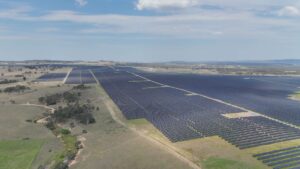PRESS RELEASE
The AEMC has made a new rule to prohibit energy retailers from making discounts appear bigger than they actually are.
The rule aims to stop pseudo-discount deals that leave consumers worse off.
This rule was requested by the Federal Minister for the Environment and Energy, the Hon Josh Frydenberg, and is part of the reform package from ministers following the Australian Government’s roundtable with energy retailers last year to help deliver more affordable energy for consumers.
AEMC Chairman, Mr John Pierce AO, said preventing discounts off inflated base rates is another important way of protecting consumers and giving them more control over their energy bills.
“Discounting can work to benefit consumers as long as the details are properly disclosed,” Mr Pierce said. “But dodgy discounts deliberately designed to confuse consumers are not acceptable.”
“Confusion around retail price offerings also means most consumers don’t grasp the opportunities on offer.”
“That’s why it’s important to have rule requests like these – so competition in the retail market delivers for consumers,” said Mr Pierce.
The new rule starts on 1 July 2018.
In detail, it will prohibit retailers from discounting off market retail contracts where all the rates in the contract (such as usage rates and daily charges) are above the equivalent rates in a standing offer. In these cases, before discounts, consumers would be worse off compared to the standing offer.
“There’s no single deal that is best for every customer, given the different ways people use energy. So it’s still important of customers to shop around,” said Mr Pierce.
The AEMC’s final determination also recommends new civil penalties if retailers breach the Retail Pricing Information Guidelines which set out how energy prices must be presented.
These changes relate to one particular aspect of discounting. However, there are broader issues with retailer discounting practices. As explained in the AEMC’s 2017 Retail Competition Review, the use of conditional discounts, such as pay-on-time discounts, are also potentially confusing consumers. Many consumers are not aware that the discounts are typically off a standing offer price that is not set consistently across retailers, as each energy retailer sets its own standing offer.
The AEMC supports the work underway on these broader issues with discounting, including the Australian Energy Regulator’s revision of the Retail Pricing Information Guidelines and also the ACCC’s retail electricity pricing inquiry.
The AEMC will continue to liaise with the AER and ACCC on other rule changes and initiatives to make it easier for consumers to compare energy offers.
Victoria
Victoria has not adopted the National Energy Customer Framework. This means the National Energy Retail Rules managed by the AEMC do not apply in Victoria. Accordingly this new rule does not apply in Victoria.
Victoria has its own retail energy code managed by a state regulator, the Essential Services Commission of Victoria. The Victorian regulator can adopt a rule from the National Energy Retail Rules to its own retail energy code.
Media: Bronwyn Rosser, Communication Specialist, 0423 280 341, [email protected]
Key terms
Market offer contracts are set by energy retailers. Because the prices are set by the retailer, discounts can be offered. They have terms and conditions which must adhere to consumer protection laws. Outside of these minimum requirements, retailers have flexibility in how they design their offers for customers. This can include incentives, different billing periods and additional fees and charges for flexible service arrangements.
If you don’t want to sign up to a market retail offer, you can choose a standard retail offer, sometimes called a standing offer. With standard retail offers, prices are:
- often set by the government (depending on where you live)
- are generally higher than for market retails offers
- and can’t change more than once every six months.
Customers on standard retail offers can’t get discounts like they can with market retail offers. In general, standing offers are used as a benchmark against which retailers may offer discounted prices.
For more information visit the Energy made easy website.








